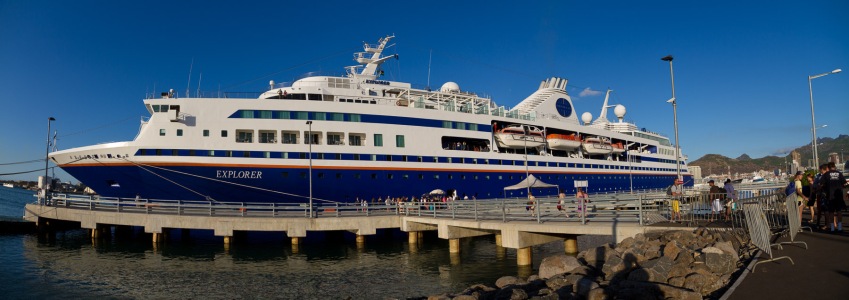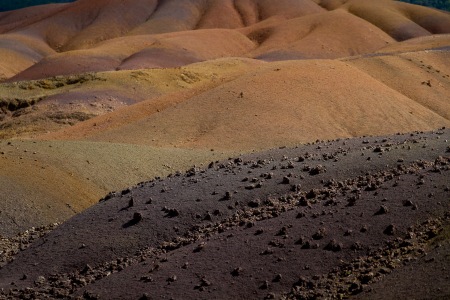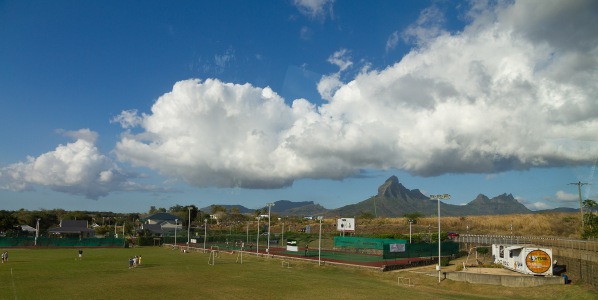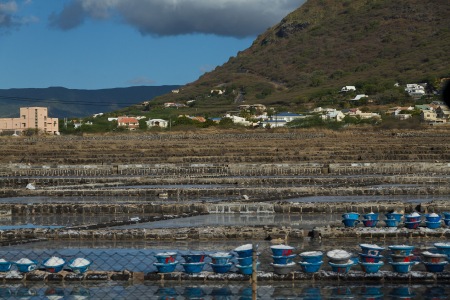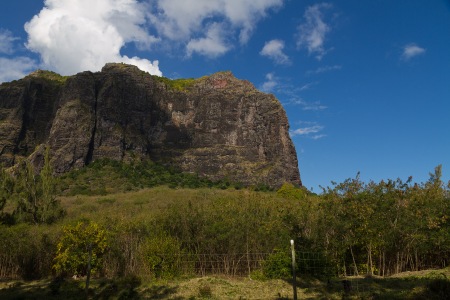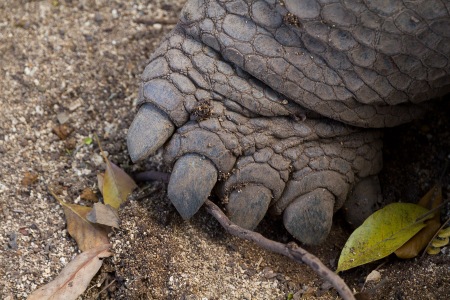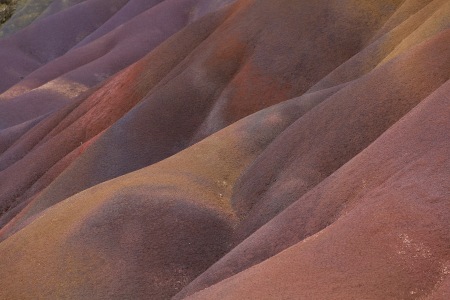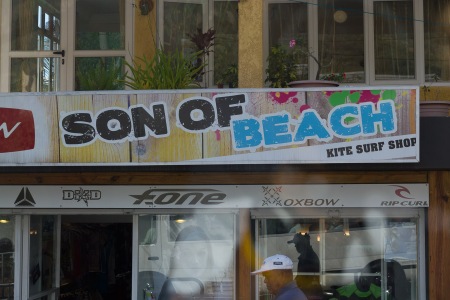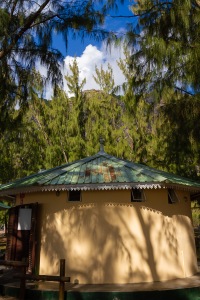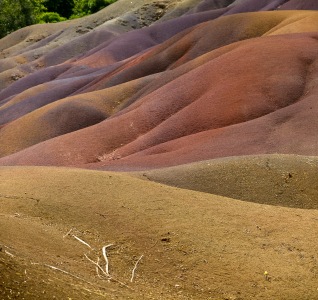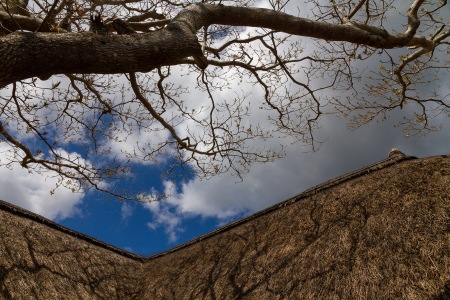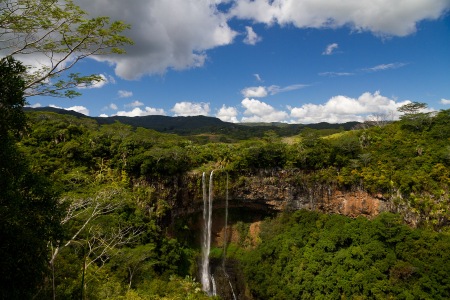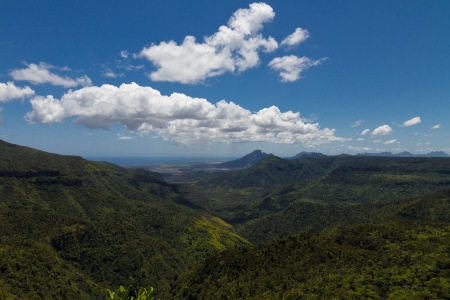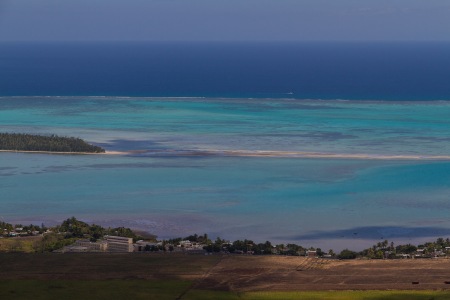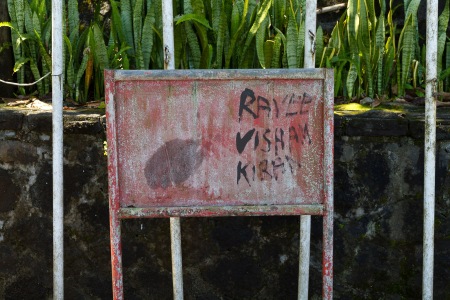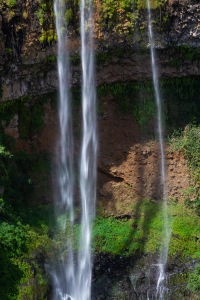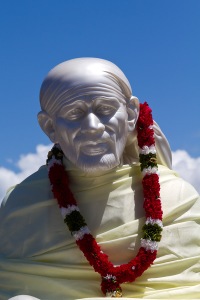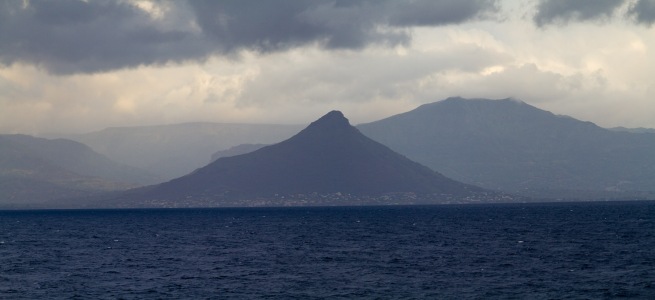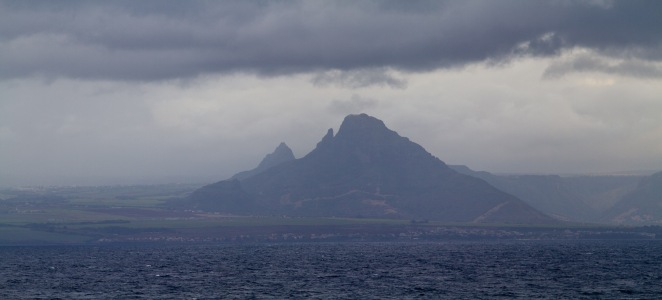October 4, 2011: “I know you have, you just don’t remember why. You may not know where this island is on this big, blue earth, but I can assure you that way back in grade school, you learned about it. Do not google it, at least, not yet.
Yesterday morning we passed by Reunion Island, the primary island of a volcanic (i.e. ‘hotspot’) island chain, lying north of the Tropic of Cancer. Similar to Hawaii, Reunion has active volcanic activity, though not in the recent past. Mauritius is the next smallest island to the north of Reunion, both of which lie about 800 miles east of Madagascar. Having arrived in Mauritius 12 hours early due to a non-life threatening medical emergency requiring one of the Lifelong Learners to disembark to return to South Africa, we are currently 10,676 miles from Golden, about as far away as we’ll get on this voyage. It’s 10 hours later than in CO, and as I write this in the late afternoon, you all in the U.S. are in some stage of starting your day… [continued below gallery]
…Approaching Port Louis from the southwest, one could easily imagine being in the vicinity of some beautiful South Pacific Island. Mauritius is, in fact, Europe and India’s “Hawaii”. Steep-sided, green mountains rise abruptly from the plains, beaches, and fringing reefs below. Having been conquered first by the British in search of strategically-placed ports, Mauritius remained completely uninhabited until the early 1700’s, after which the land was virtually stripped in deference to the cultivation of sugar cane. Many species fell to this ‘development’, one notable species in particular. Keep in mind the fact that Madagascar has more than several species unique to its island. An indirect hint, that one is.
The predominant ethnicity of the 1.2 million people living on Mauritius is of varying Indian descent, with a sprinkling of African and Malaysian influence. England having been relieved of the oversight of Mauritius by the briefly conquering French (who, oddly, also held Reunion, and still do), both English and French creole are widely spoken. The food is strongly influenced by India, and they drive on the wrong side of the road. Tourism has become the country’s primary contributor to its economy, and they have thus become interested in fixing the environmental damage caused by 200+ years of resource usage, resulting in both the extinction of life on the island as well as obvious environmental degradation. Another hint!
Heidi being on call for the day, the boys and I planned an SAS FDP, the Volcanic Island Tour, led by the geology professor onboard, Alan Goldin. We toured various geologic sites on the island, saw Ganga Talao (a Hindu site where the pilgrimage of 450,000 people occurs yearly), had lunch at Chamarel, then went to the beach for 45 minutes before returning to the ship to depart at 2000 hours.
Yep, that’s right, Spring Break now lasts only 12 hours for Semester at Sea students, as previous voyages have had some alcohol-related occurrences to provoke the program into limiting our time there. During the logistical pre-port 24 hours ago, Captain Jeremy Kingston gave a short talk that put the fear of you-know-who into the students should they try to board the ship stupid-drunk. That being said, there were still 10-ish students that blew >0.20 after failing the more subjective tests (like acting like a good human being while waiting in line to re-board). Heidi was in the clinic until 2115 babysitting them, after which the head of security, Savio took over for the remaining 90 minutes until the students got below 0.15 (lofty goal for a few of them). Both the security and medical staff on board practically loathe going to Mauritius for this reason, and the fact that they can no longer take some time off the ship and have fun for a few days must factor into it. My five minutes in the medical clinic after we re-boarded left me with the impression that one person in particular didn’t deserve to be on the ship. But, all in all, the nurses in the Medical Clinic that Heidi works with thought that the alcohol-related problems were substantially less significant than in the past.
Too short a time here, but we had fun nonetheless.
Oh, yeah! Mauritius is the only place on earth that the Dodo Bird, an apparent descendant of the pigeon, ever lived. Lack of predators on the island prior to the introduction of humans allowed the bird to flourish without needing to fly, which, as it turned out, would have come in handy after the most dangerous animal on the planet arrived in the early 1700s.”
If you’d like to visit my original Blogspot post for this country, please start here: 10/4/11: You have heard of Mauritius!

